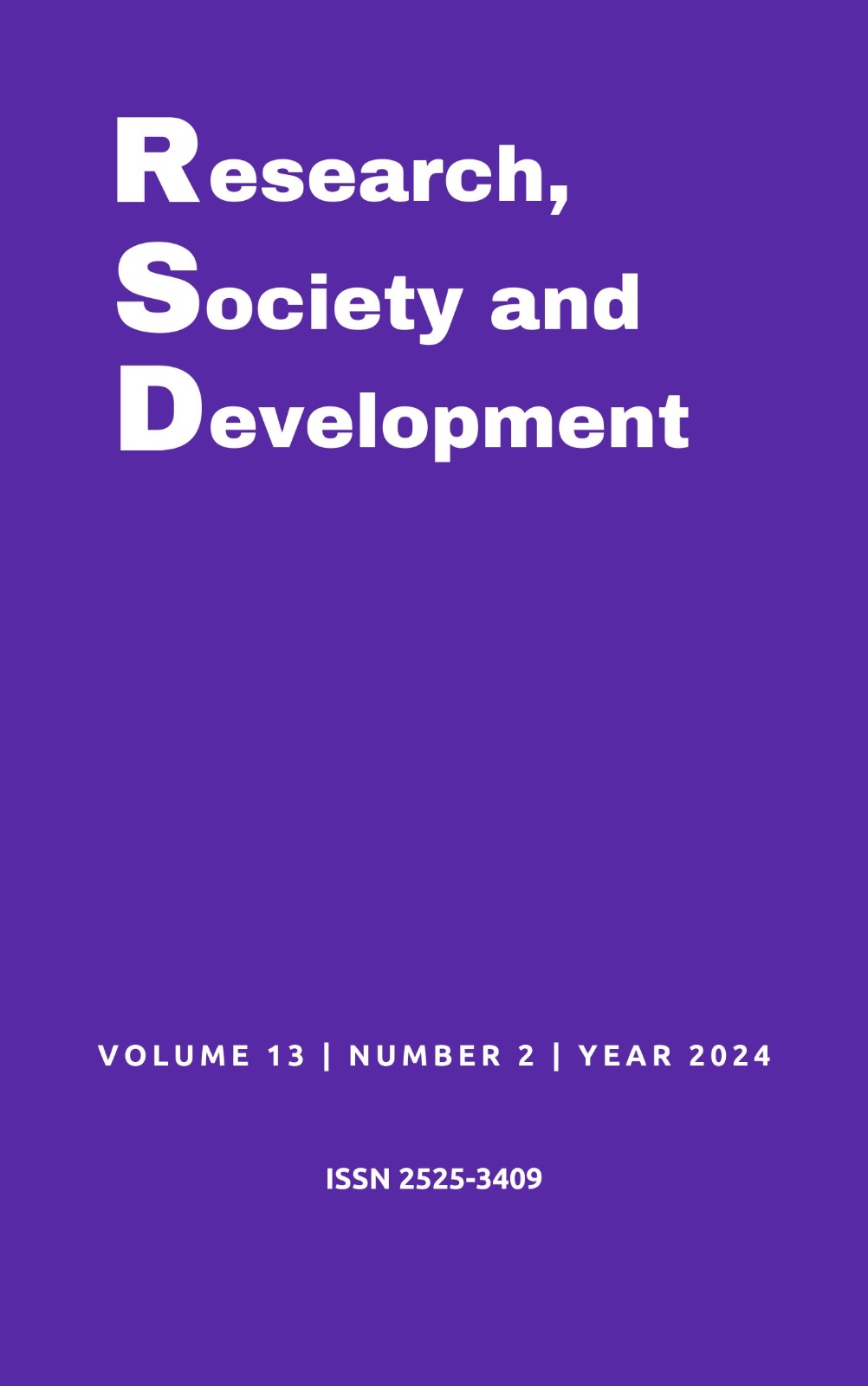Marx and Tocqueville: From the February revolution to Louis Bonaparte's coup d'état, approximations and contrasts in the French political process in the mid-19th century
DOI:
https://doi.org/10.33448/rsd-v13i2.45097Keywords:
February revolution, Coup d'état, Social classes, Marx, Tocqueville.Abstract
This research aims to compare the theories of Marx and Tocqueville regarding the mid-19th century political events in France that led to the February Revolution of 1848 carried out by the Parisian proletariat and how this same proletariat would be crushed by the bourgeoisie in the June Days of the same year, causing a shift in social classes that culminated in the coup d'état of Louis Bonaparte in December 1851, supported by the mass of the bourgeoisie.This is a strictly bibliographic and literature review research, based on Marx's The Eighteenth Brumaire of Louis Bonaparte and Tocqueville's Recollections of 1848, supported by several authors and commentators of these classical authors. As a result of our research, we found that, despite the methodological and class differences that separate the two classical thinkers, their analyses converge on crucial points, such as the characterization of the February Revolution as a socialist one with the proletariat as the main social force that overthrew the Orleanist Monarchy, as well as the general causes and accidents that enabled the outbreak of the revolution and all the chains of events that culminated in the coup d'état of Louis Bonaparte and put an end to the French revolutionary process.
References
Antunes, J., Melo, R. P., & Prado, C. (2022). Bonapartismo, história e revolução: reflexões sobre o 18 de brumário de Luís Bonaparte de Karl Marx. Uberlândia: Navegando Publicações. https://issuu.com/navegandopublicacoes/docs/e-book_bonapartismo.
Badia, G., & Mortier, J. (1971). Avant-Propos. In: Marx, K. & Engels, F. Correspondance, Tomo II (1849-1851). Editions Sociales, Paris, France.
Braudel, F. (2011). Prefácio. In: Tocqueville, A. (2011). Lembranças de 1848: as jornadas revolucionárias em Paris. Tradução de Modesto Florenzano. Companhia das Letras.
Dreifuss, R. A (1987). 1964: A Conquista do Estado, ação política, poder e golpe de classe, (5a ed.). Vozes.
Engels, F. (2020). Detalhes sobre o 23 de junho. In: Nova Gazeta Renana, n.26, 26/06/1848. Tradução Lívia Cotrim. 1ª ed. São Paulo: Expressão Popular.
Engels, F. (2020). O 23 de junho. In: Nova Gazeta Renana, n.28, 28/06/1848. Tradução Lívia Cotrim. Expressão Popular.
Gil, A. C (2017). Como elaborar projetos de pesquisa. (6a ed.). Atlas.
Hobsbawm, E. J. (1996). A Era do Capital, 1848-1875.Tradução Luciano Costa Neto. (5a ed. Ver.). Paz e Terra.
Lakatos, E. M., & Marconi, M. A. (2003). Fundamentos de metodologia científica . (5a ed.), Atlas
Lima, S. C (2017). As Jornadas Revolucionárias de 1848: uma análise comparativa do pensamento político de Karl Marx e Alexis de Tocqueville. Revista Hydra, 2(3), junho.
Martins, L. R. (2021). Karl Marx e Alexis de Tocqueville: interpretações sobre a Revolução de 1848. Ágora (St. Cruz Sul, Online), 23(1), 331-347.
Marx, K. (1978). O 18 Brumário de Luís Bonaparte e Cartas a Kugelman. (4a ed.). Paz e Terra.
Marx, K. (2008). Contribuição à Crítica da Economia Política. (2a ed.). Expressão Popular.
Marx, K. (2011). O 18 Brumário de Luís Bonaparte. Tradução Nélio Schnfeider. Boitempo (Coleção Marx-Engels).
Marx, K. (2012). As Lutas de Classes na França de 1848 a 1850. Boitempo.
Marx, K. (2017). O Capital: crítica da economia política. Livro I. Tradução Rubens Enderle. (2a ed.). Boitempo.
Marx, K. (2020). A Revolução de Junho. In: Nova Gazeta Renana, n.29, 29/06/1848. Tradução Lívia Cotrim. Expressão Popular.
Mayer, J. P. (1968). Alexis de Tocqueville y Carlos Marx. Afinidades y Antagonismos. https://www.cepc.gob.es/sites/default/files/2021-12/8861rep157068.pdf
Mclellan, D. (2023). Karl Marx, vida e pensamento. Tradução Jaime A. Clasen. Vozes.
Pereira, A. S. et al. (2018). Metodologia da Pesquisa científica. UFSM. https://repositorio.ufsm.br/bitstream/handle/1/15824/Lic_Computacao_Metodologia-Pesquisa-Científica.pdf?sequence=1.
Ribeiro, R. J. (2011). Introdução: a Política Teatral. In:Tocqueville, Alex de (2011). Lembranças de 1848: as jornadas revolucionárias em Paris. Tradução de Modesto Florenzano. Companhia das Letras.
Silva, M. L (2024). A Teoria do Estado em Marx: bonapartismo como princípio e fundamento da contrarrevolução preventiva. Org&Demo, Marília, 25. https://doi.org/10.36311/1519-0110.2024.v25.e024005.
Tocqueville, A. (1997). O Antigo Regime e a Revolução. Tradução Yvone Jean. (4a ed.). Editora Universidade de Brasília.
Tocqueville, A. (2011). Lembranças de 1848: as jornadas revolucionárias em Paris. Tradução de Modesto Florenzano. Companhia das Letras.
Vieira, J. L (2022). Marx e a Dinâmica das Classes Sociais em o 18 Brumário: a Historicidade contra o reducionismo. In: Antunes, J., Melo, R. P., Prado, C. (Orgs), (2022). Bonapartismo, história e revolução: reflexões sobre o 18 de brumário de Luís Bonaparte de Karl Marx. Uberlândia: Navegando Publicações. https://issuu.com/navegandopublicacoes/docs/e-book_bonapartismo
Downloads
Published
Issue
Section
License
Copyright (c) 2024 João Carlos da Silva Santiago; Andréa Bittencourt Pires Chaves; Elenice do Socorro Nazaré Lisboa; Raimundo Wanderley Correa Padilha

This work is licensed under a Creative Commons Attribution 4.0 International License.
Authors who publish with this journal agree to the following terms:
1) Authors retain copyright and grant the journal right of first publication with the work simultaneously licensed under a Creative Commons Attribution License that allows others to share the work with an acknowledgement of the work's authorship and initial publication in this journal.
2) Authors are able to enter into separate, additional contractual arrangements for the non-exclusive distribution of the journal's published version of the work (e.g., post it to an institutional repository or publish it in a book), with an acknowledgement of its initial publication in this journal.
3) Authors are permitted and encouraged to post their work online (e.g., in institutional repositories or on their website) prior to and during the submission process, as it can lead to productive exchanges, as well as earlier and greater citation of published work.


